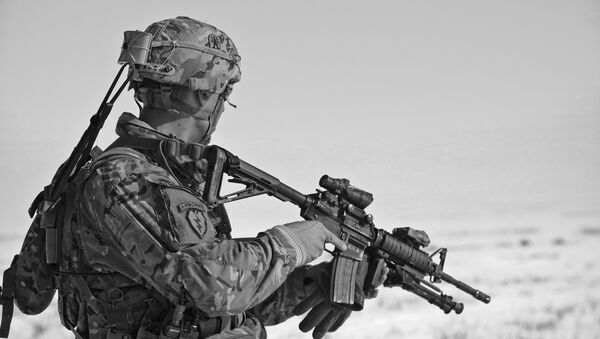Chances are, they may be doing rather well too, as war is profitable, especially in the current geopolitical climate. And where there is demand, there will always be supply.
The global arms trade consists of a number of commercial companies, arms manufactures and war contractors, ready to deliver their goods to the highest bidder.
The Arms Trade Treaty went into force in December 2014 to promote #Peace #SDG16 marking a global achievement https://t.co/yqRjRjCHeG pic.twitter.com/bpoUb47Tan
— Safecity/Rasha (@pinthecreep) October 5, 2016
According to data published by the Stockholm International Peace Research Institute (SIPRI), the private weapons industry is worth over a whopping US$400 billion (£313.97bn) worldwide.
The biggest independent arms exporting countries, earning the largest estimated profits between 2010-2014, according to SIPRI, were the United States, Russia, China, Germany and France. The five biggest importers were India, Saudi Arabia, China, Vietnam, the United Arab Emirates (UAE) and Pakistan.
Lockheed Martin (US) is top of the overall list of profiteers with annual weapons sales said to reach US$35.49 billion. They are followed by Boeing (US) at US$30.70 billion and then, BAE Systems (UK), whose annual sales are estimated at US$26.82 billion.
The EU's Airbus Group, is a little further down the list, as well as many other companies from Russia, France, Germany, Italy, Israel and India — who have also made the top 100.
Interestingly, the top five countries profiting the most from arms trade happen to be the five permanent members of the United Nations Security Council: the US, UK, France, Russia, and China.
Seeking global peace with the strategy of war is certainly a very confusing foreign policy which is to this day adopted by governments around the world. But the creation of national wealth and providing jobs is often given as the reason for why the arms industry is necessary and continues to thrive, even more paramount it seems, than the ethical responsibilities the industry fails to acknowledge.
In our latest #Peace & #Justice blog: @Oxfam’s @DeborahHardoon on #inequality & violence https://t.co/PtAbhAvBkI https://t.co/PTh5SKo9R6 pic.twitter.com/TRmBdbFHIC
— Saferworld (@Saferworld) October 4, 2016
And beyond the physical arms trade industry, we shouldn't forget the growing demand for cyberdefense technologies. Not only are countries engaged with the import and expor of arms, major corporate organizations and governments are also putting in a lot of effort and money into improving their cybersecurity systems too.
The big companies involved in delivering cyberdefense systems include the likes of Intel (US), BAE Systems (UK), Raytheon (US) and Shoji Communications (India).



